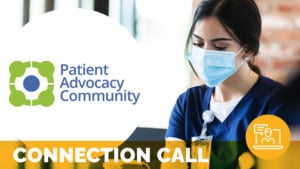Caring for Everyone: The Vital Role of America’s Essential Hospitals
Published July 8, 2025


J.R. Labbe, CEC
Co-Founder, CCO, Executive Coach
CSE Leadership, LLC
Nicole Kirchhoffer DNP, MS, RN, CEN, CPXP, FPCC, NEA-BC
Patient Experience Officer / Assistant Vice President
Maimonides Medical Center
Sharif Abdelhamid, MA, CPXP
Chief Patient Experience Officer
Denver Health
Lara Burnside, MHA, CEC
Co-Founder, CXO, Executive Coach
CSE Leadership
We’ve been called many things over the years — city hospital, county general, publicly supported, safety net.
But no matter the name, one thing remains true: our work is essential. We deliver a significant level of healthcare and health-related services to people across our communities.
While the term “essential hospital” may mean different things to different people, our mission is unmistakable: to care for everyone – especially those who face the greatest challenges in getting the care they need.
As America’s Essential Hospitals (AEH) explains, our institutions “share a mission to care for all people, including underrepresented and marginalized populations.” We have a strong commitment to delivering compassionate, high-quality care. We are trusted providers for neighbors and families with complex health needs and limited options.
In a piece titled “Essential but undefined: defining safety net hospitals,” Dr. Paula Chatterjee wrote in the New England Journal of Medicine that the National Academy of Medicine defines safety-net providers as those that — by mandate or mission — offer access to services regardless of a patient’s ability to pay, and whose patient population includes a “substantial share of…uninsured, Medicaid, and other vulnerable patients.”
In practice, definitions may vary slightly, but the essence is consistent: essential hospitals serve more, give more, and stretch farther — not because it’s profitable, but because it’s necessary.
And while debates continue about what constitutes “substantial” or “meaningful” care or who exactly qualifies as “vulnerable,” we know this to be true: we care for a greater share of people who are low-income, have complex health needs, and are too often overlooked — many of whom are doing the essential work that keeps our communities running.
They are the working poor. Childcare and assisted living providers. Front-line culinary workers. The crew that picks up your trash. The janitor in your child’s school.
And our essential care extends far beyond the basics. We invest in services many hospital systems often do not, regardless of patient population: transplants, cardiac surgeries, high-risk maternal and neonatal intensive care, inpatient psychiatric services, even burn and trauma centers that often receive patients from literally hundreds of miles away.
What drives us is a combination of demonstrated need, community support, and political acumen – in communities large and small across our nation.
But the challenges are real. Shifts in the healthcare landscape combined with rising numbers of uninsured patients are putting even greater strain on the nation’s essential hospitals. Identifying and addressing these risks will require collective insight and unified action.
That’s why we are launching the essential hospitals PX blog series – a space for connection, collaboration, and advocacy. We invite you to contribute your stories, share best practices, and offer insights and solutions.
Together, we can shape the future of essential care – and make sure no one gets left behind.
About the Essential Hospitals Workgroup of the Community Council
The Community Council convenes the diverse segments of the Institute community to engage in strategic review and feedback, address and plan for specific segment needs, and identify opportunities for expanded connection and collaboration. The Essential Hospitals Workgroup was launched to explore and tackle the challenges unique to safety net hospitals and share perspectives that can be applied in most other hospital settings.
Related content
-
Infrastructure & Governance
Let’s collectively raise our voices to say, “We’ve had enough.”
Published November 9, 2020

“Racism is a problem with bad policy, not bad people.”
Learn more -
Culture & Leadership | Infrastructure & Governance
ED Patient Loyalty Scores Nearly Double Through an Innovative Patient Navigator Role
Published September 11, 2025

The ED clinical patient navigator (PN) role addresses experience gaps related to wait times, communication, teamwork, and personalized care during visits. By creating a patient experience value stream map, we identified the need for the PN role, focusing on patients at risk for negative experiences. The PN customizes interventions and ensures patients understand their care
Learn more -
Infrastructure & Governance | Quality & Clinical Excellence
Patient Advocacy Community Connection Call: Disruptive Behavior Response Plan
Published September 11, 2024

Disruptive behavior undermines the relationships, communication, and teamwork needed to provide high-quality patient care. To promote a culture of safety, health care organizations must address the problem of behaviors that threaten the performance of the health care team. Join the Patient Advocacy Community for an opportunity to discuss disruptive behavior response plans. Connection Calls are
Learn more
